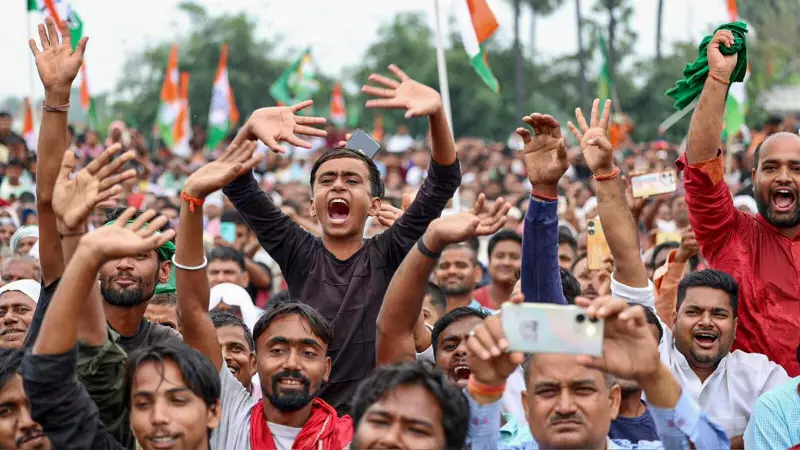
As Bihar prepares for the crucial 2025 assembly elections, the state's economic performance continues to raise serious concerns among policymakers and development experts. Despite notable improvements in governance under Chief Minister Nitish Kumar, Bihar remains one of India's poorest states with alarming economic indicators.
The Stark Reality of Bihar's Economic Standing
Recent data reveals that Bihar's per capita income stands at a mere ₹54,000, dramatically lower than the national average and significantly trailing behind southern states like Karnataka (₹3,22,000) and Kerala (₹2,04,000). This represents less than one-third of India's average per capita income, highlighting the immense development gap the state needs to bridge.
Comparative Analysis with Southern States
The economic divergence between Bihar and southern Indian states has widened considerably over the years. While states like Karnataka have leveraged technology and industrial growth to boost their economies, Bihar continues to struggle with fundamental development challenges. The comparison becomes even more stark when considering human development indicators beyond just income metrics.
Key Factors Behind Bihar's Economic Struggle
- Historical disadvantages following the state's bifurcation
- Limited industrial base and manufacturing capacity
- Infrastructure deficits affecting economic productivity
- Educational and skill development gaps in the workforce
- Agricultural dependency with low productivity levels
Governance Improvements Amid Economic Challenges
Despite the grim economic numbers, Bihar has witnessed significant improvements in law and order and certain social indicators under Nitish Kumar's leadership. The government's focus on infrastructure development, particularly roads and electricity, has created a foundation for future growth, though the translation into economic prosperity remains slow.
The Land Reforms Question
Experts point to land reforms as a critical area requiring attention. Unlike states that have successfully implemented land redistribution and tenure security measures, Bihar's progress in this domain has been limited. Effective land reforms could potentially unlock agricultural productivity and facilitate industrial development.
Political Implications for 2025 Elections
The economic narrative is expected to play a central role in the upcoming 2025 elections. With development becoming a key electoral issue, political parties are likely to focus their campaigns on economic revival plans and strategies to accelerate growth. The electorate's response to these development promises will be crucial in determining the political outcome.
The Road Ahead for Bihar's Development
As Bihar stands at this critical juncture, the need for a comprehensive development strategy has never been more urgent. The state requires focused interventions in education, healthcare, infrastructure, and industrial policy to break free from the cycle of low growth and poverty. The 2025 elections could potentially mark a turning point in Bihar's development trajectory.






